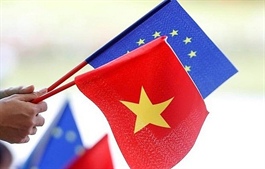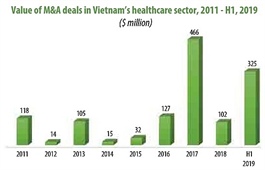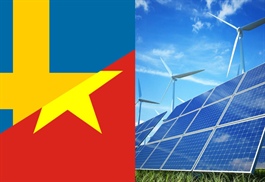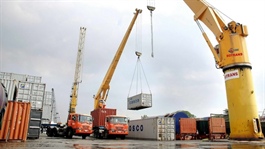Tetra Pak commits to net zero emissions
Tetra Pak commits to net zero emissions
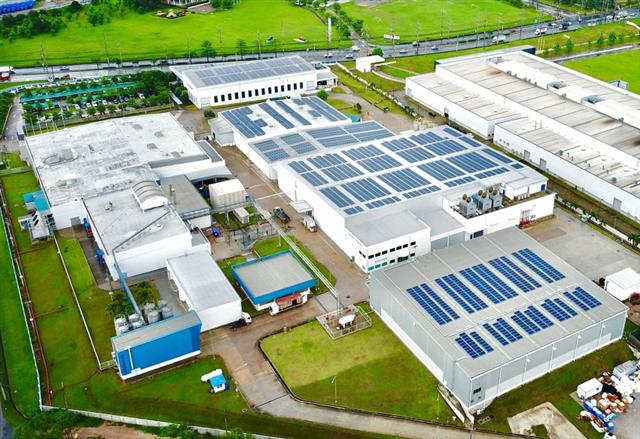
Tetra Pak's manufacturing hub in Binh Duong is one of the first of its kind in Vietnam to apply the latest, most-demanding environmental standards
|
In June 2020, Tetra Pak, a global leader in food processing and packaging solutions, reconfirms its strategic priority to drive the sustainability transformation by setting an ambitious net zero emissions target across the value chain by 2050, supporting this with an intermediate 2030 target of net zero carbon emissions across its own operations.
The company will also set emissions reduction targets in line with 1.5 degrees Celsius, according to the Science Based Targets (SBT) initiative across scopes 1, 2, and 3.
Tetra Pak was founded on the idea that a package should save more than it costs, with sustainability always at the core of how the company operates as a business. Since 1999, the company has been collecting data on energy use and GHG emissions from across the organisation on an annual basis, with its GHG accounts audited by an independent third party since 2013.
“We have consistently delivered on our climate goals, right from the first goal set in 2002, again in 2005, and we are on track to meet our 2020 goal,” said Lars Holmquist, executive vice president Packaging Solutions and Commercial Operations at Tetra Pak.
“In 2017, we were the first company in the food and beverage industry to have its climate impact reduction targets approved by the SBT initiative. More recently, we joined the European Alliance for Green Recovery, the first pan-European call for mobilisation on post-crisis green investment solutions.
“Today, we’re once again leading the way by setting ambitious net zero emissions targets that will drive transformation right across our sector and the entire value chain. The planet’s greatest environmental challenge demands nothing less from us.”
Tetra Pak will focus on four key areas to reach net zero GHG emissions across its own operations by 2030 and to realise its 2050 ambition along the entire value chain.
Along with this, the company has focused in lowering energy-related emissions through energy conservation, improvements in energy efficiency, installing on site solar photovoltaics (solar PV) and purchasing renewable energy.
|
To curtail carbon footprint, Tetra Pak is working with suppliers to cut upstream carbon emissions, including setting ambitious renewable energy targets and increasing the use of renewable and recycled materials, which are critical to make a low-carbon circular economy possible. |
Since 2011, Tetra Pak has invested over €16 million ($17.9 million) in energy efficiency, thereby avoiding energy use increasing by 23 per cent. To date, the company has installed some 2.7MW of solar PV (or about 8,000 panels), delivering low-carbon electricity whilst saving operational costs. A member of the RE100 initiative, Tetra Pak has gone from 20 per cent use of renewable electricity in 2014 to 69 per cent in 2019, and it is on track to achieve its 2020 target of 80 per cent.
This journey included the installation of solar panels across its operations and the purchasing of renewable certificates, with the company being one of the first to do so in countries such as Thailand and South Africa.
To curtail carbon footprint, Tetra Pak is working with suppliers to cut upstream carbon emissions, including setting ambitious renewable energy targets and increasing the use of renewable and recycled materials, which are critical to make a low-carbon circular economy possible.
In addition, the company has made efforts to accelerate its low-carbon circular packaging and equipment portfolio development and is working to help customers achieve their emission reduction targets.
Other tasks involves developing sustainable recycling value chains via collaboration with customers, waste management companies, recyclers, municipalities, industry associations, and equipment suppliers.
Tetra Pak’s vision is that all beverage cartons can be collected for recycling, and zero beverage cartons become litter or are sent to landfill.
In Vietnam, Tetra Pak is an enthusiastic contributor to the country's sustainability and a low-carbon circular economy. The company’s manufacturing hub in Binh Duong is one of the first of its kind in Vietnam to apply the latest, most-demanding environmental standards set by the globally-recognised LEED Gold V4 certification.
With various measures in place, the new factory could reduce its energy usage by up to 36 per cent and reuse over 17.6 million litres of water a year.
In addition, nearly 100 per cent of Tetra Pak’s carton packages in Vietnam are made from Forest Stewardship Council certified cartons. The company is also among the founders of Packaging Recycling Organization Vietnam (PRO Vietnam), working towards the ambition that all packages from member companies will be recycled by 2030.
Currently, the company is actively engaged with community organisations to establish and expand the chain of public drop-off stations so that consumers can bring their used cartons for collecting and recycling. Tetra Pak currently holds a network of roughly 30 drop-off stations in Hanoi and Ho Chi Minh City and some other provinces.






